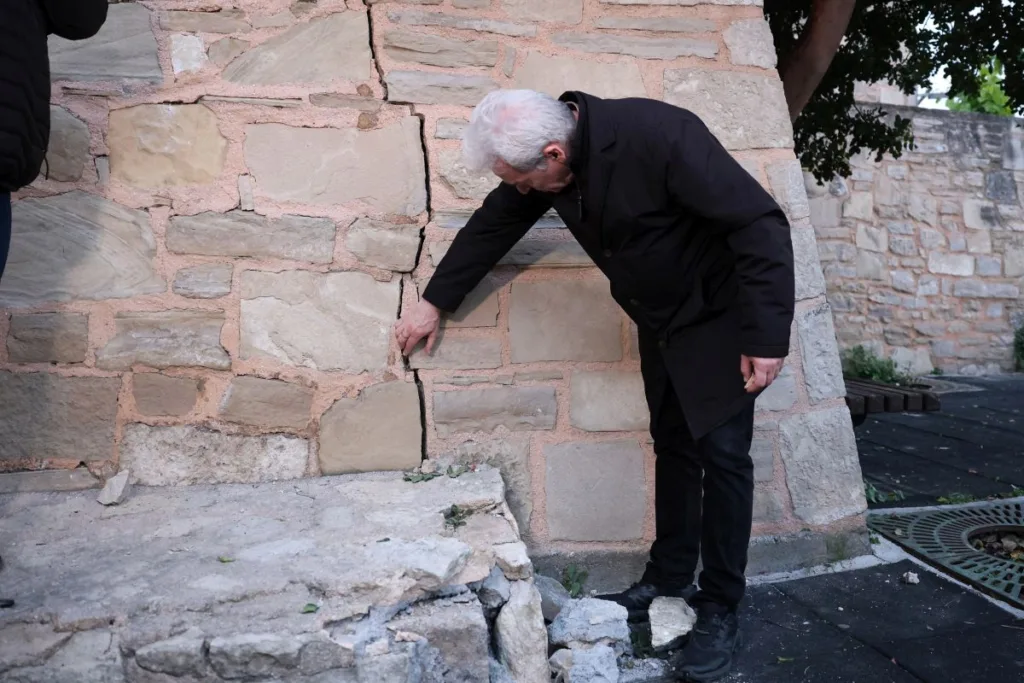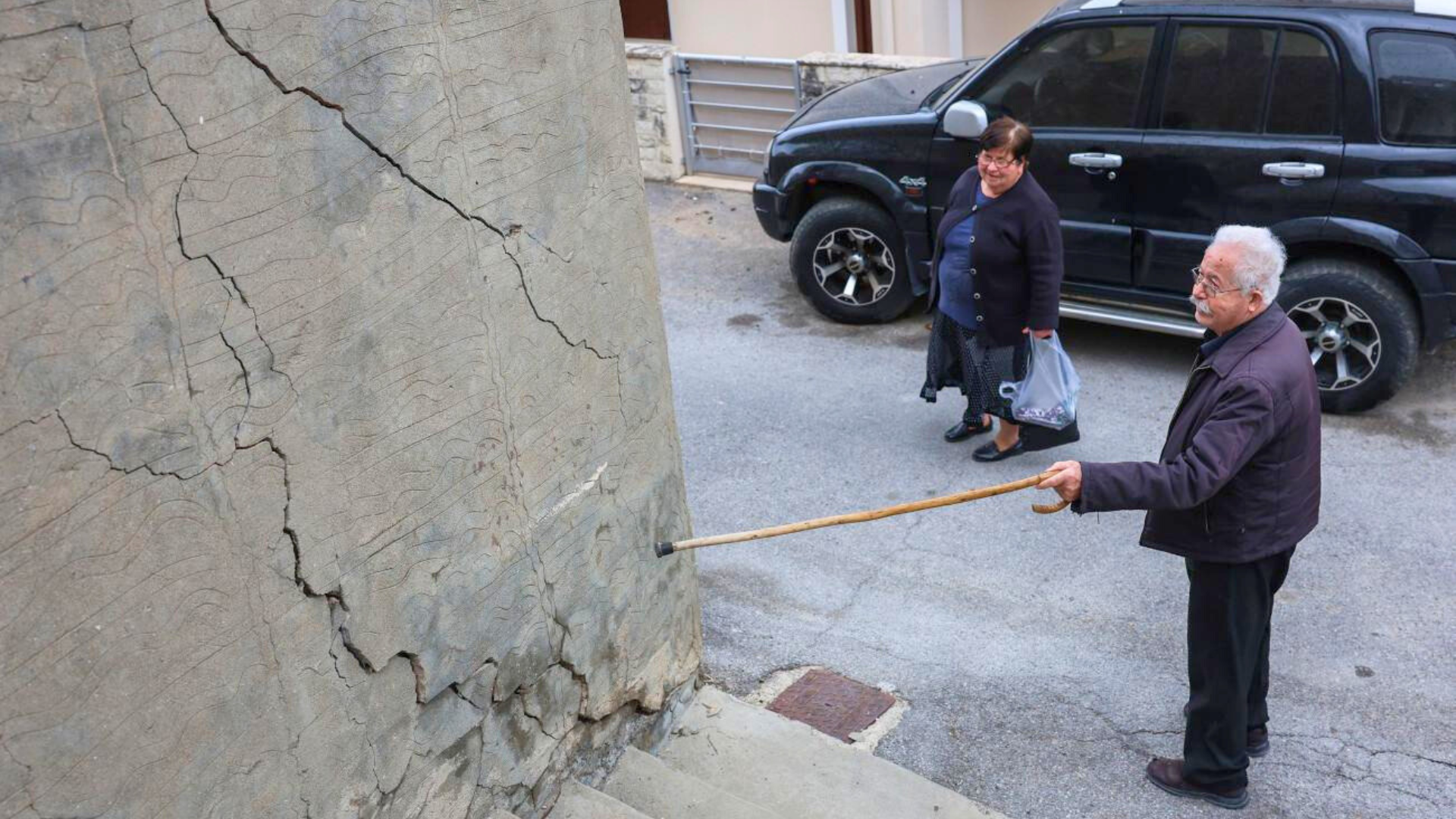A state of emergency has been declared in the village of Voutes, in Heraklion, Crete, following intense landslides that caused significant ground fissures over the past 24 hours.
The declaration, issued by Greece’s General Secretariat for Civil Protection, is aimed at managing the consequences of the sudden geological activity and will remain in effect for one month.
Cracks have appeared in at least 15 houses, roads, the local church, and the village playground—spanning a stretch of approximately 150 metres—prompting on-site inspections and evacuations.
Nine homes were classified as “yellow” by disaster recovery officials, meaning they pose a moderate risk and residents have been urged to find alternative accommodation.
Seismologist Efthimios Lekkas, head of the Earthquake Risk Assessment Committee, said a clearer assessment of the causes and extent of the fissures will be available soon.

Investigators are examining whether a leak from an underground water pipeline, first detected on April 23, may be linked to the landslides, though it remains unclear if it was the cause or a result of ongoing soil movement.
Geology expert Dimitris Papanikolaou attributed the fissures to slow-moving rotational landslides caused by the area’s steep slopes and unstable clay-rich soil.
“It is not sudden,” he said, warning the village’s location on a hillside above a valley makes it persistently vulnerable to such incidents.
While the church and cultural centre remain open, the playground has been closed for safety. Experts recommend deploying specialised monitoring equipment to track further movement and assess risk levels.
